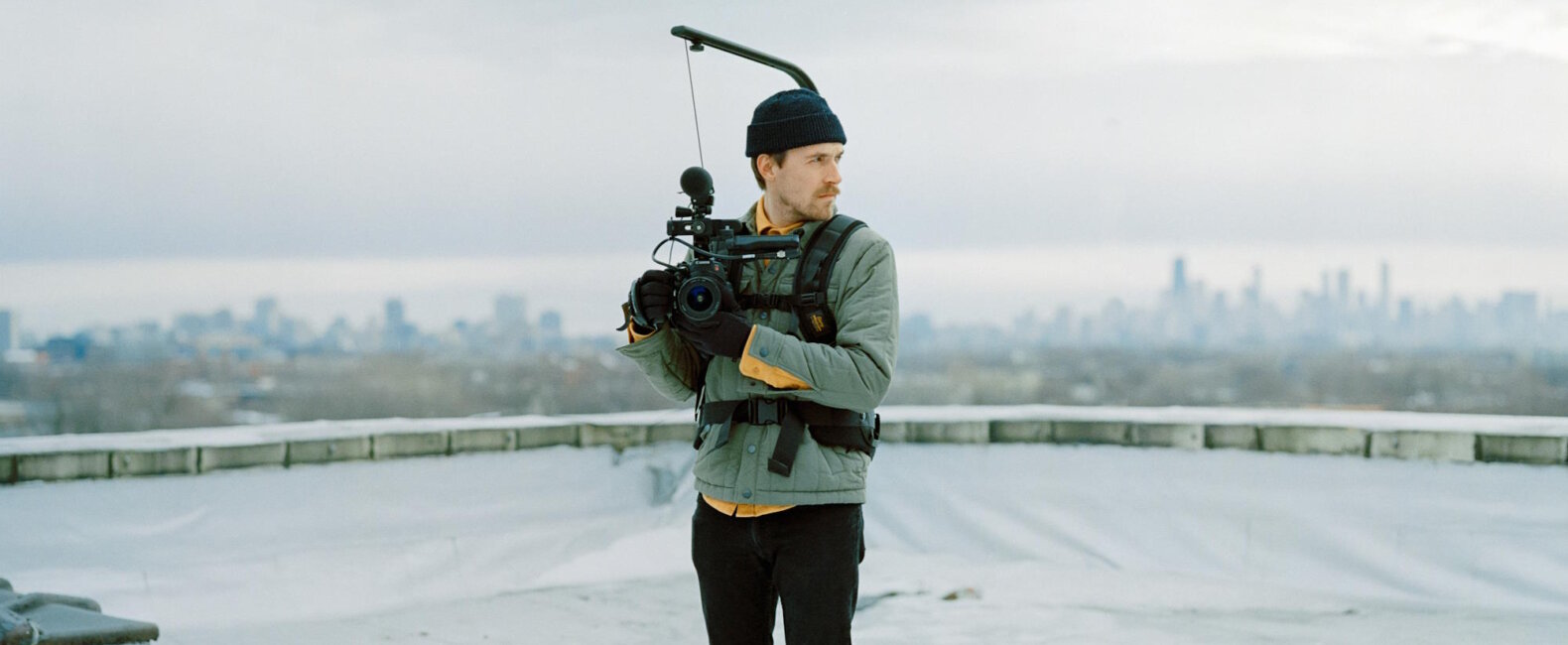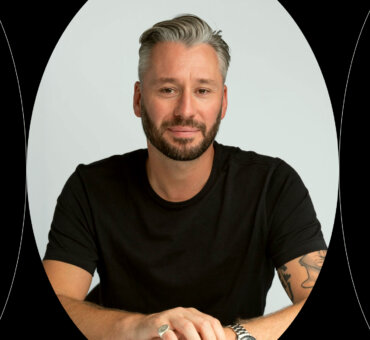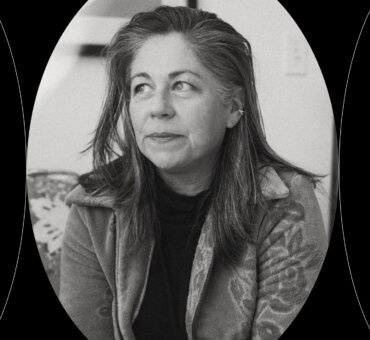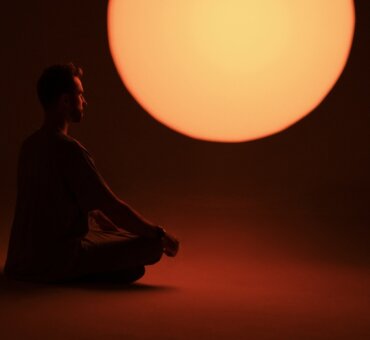When it comes to filmmaking (and creating in general), there’s one rule to remember: it’s a marathon, not a sprint. No one understands this more than Eric Floberg. The Chicago-based photographer/filmmaker has been documenting his adventures for his growing YouTube audience for years, and he’s currently working on a documentary with renowned photographer Joe Greer.
Keep reading to learn about Eric’s creative approach, what keeps him inspired, and how he uses Musicbed as a tool to craft compelling stories.
Musicbed: What sparked your passion for filmmaking/storytelling?
Eric Floberg: I always had the inclination to pick up my parents’ camcorder, but the fire that started it all was a 7th-grade Spanish class project. I was teamed up with a friend who had some experience with editing in Windows Movie Maker. Once I saw the software interface, a new creative world was unlocked in my brain, understanding that it was possible to make movies digitally now. After that project, I convinced at least one teacher a year to turn my essay or oral presentation into a video, and they usually obliged. The reassurance from my peers that the videos were good made me want to keep making things.
What keeps you motivated and creatively inspired?
These days, it comes from running a whole lot. Marathon training has been a staple in my life for the past 5-6 years, and I recently started another YouTube channel in the process. It’s been wild to have a specific genre where I can tell stories consistently, whether inside of one workout, a week of training, a whole 3-month training block, or my entire running career to date. There’s always something compelling to convey. I’m not just saying this to suck up to Musicbed, but the music in my filmmaking makes literally all of the difference. As I continue to diversify my filmmaking voice in the running space, two comments are most common: “This production is some of the best in this niche,” and “The music helps in making it feel like a workout/race.” I could go on about many other things that inspire me, but these have been the most prevalent things in the past six months.
What makes a story visually appealing? What role does music play in storytelling?
I’m tempted to talk specifically about how to direct, light, compose, color, etc. which would all be incredibly valuable and meaningful, but a story doesn’t matter much if the film is constructed with visuals mattering most. I’m constantly asking myself, “What are we saying here?” Once the emotion is threaded evenly within the script and plot, it’s then that I start to care about the visuals. The visual feeling can be inspired so much more concretely with a vision that is firm, well thought out, and crafted with intention. The same can be said with music. Often, I find myself scouring the Musicbed collection, curating it with specific emotions/feelings in mind with the search bar. In that, I allow specific songs to inspire creative ideas and stories. Alternatively, I may become so obsessed with the story/scene/idea that I hunt for the music that fits after the fact. It all depends on what I’m using to motivate the action of filming. It can be a strictly one approach for an entire shoot, but most of the time, it’s a combination of the two.
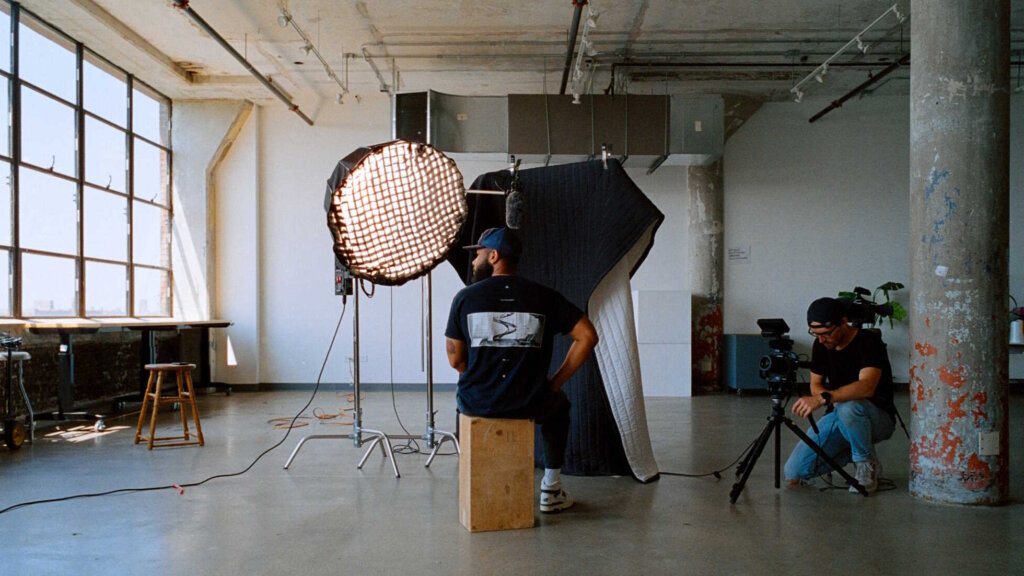
What elements do you think are essential for crafting a compelling story?
Exposition and character development will always be some of the most important elements in helping a viewer connect with a character. If an emotional/compelling moment happens late in the story, it may be lost in the viewer’s inability to relate to or empathize with that character, and the compelling moment unfolding. Additionally, an exposition that helps the viewer understand where the story is happening can bring them into that world in an intangible way that’s hard to describe, allowing them to be involved naturally. No matter what I film or create, I constantly search for conflict. A resolution will always fall flat without a compelling hardship of some kind. In any form of filmmaking, conflict can be difficult. In a documentary, it’s actual people’s lives. In a narrative piece, it may bring up personal traumas to the talent or crew. It’s a space that is sensitive, yet necessary to reach the viewer compellingly.
How important is music in your work?
I truly struggle without it. My first exposure to the arts as a child was through music and singing, so it’s ingrained in me. For that reason, I don’t care to explore filmmaking without it. The way a song or single instrument can communicate a feeling or emotion continually proves to be the reason I get goosebumps when watching films. Its position can be so complimentary, and at other times, it can act as a main character itself. I love the elasticity of that as a tool in reaching the viewer.
What advice would you give other filmmakers/creators who are just starting their careers?
Don’t get overwhelmed with everything that exists now. Comparing yourself as a beginner to literally anyone else with more experience can push you to defeat. I often compare entrepreneurship and art to my running; specifically the marathon distance. 26.2 miles (42 kilometers) can be all too overwhelming to think about all at once, but if you run the mile (or kilometer) that you’re in, one step at a time, it will lead to a culmination of an entire marathon run. Peaks and valleys will be abundant, but the most important way to sustain yourself through this kind of career is by showing up consistently and putting in the reps. Find positive people around you to push you forward, to be better, and to pick you up in difficulty.
How do you find the balance between pushing boundaries creatively and delivering what your client wants or audience wants to see?
Oftentimes, if I know I want to push a creative boundary, I over-communicate with the client before production. Conversations and contracts in writing can establish that you’re embarking on a new creative effort together. It’s no longer “my” ideas against “yours,” but rather, our collective effort to press forward over the stereotypical boundary. In that, you may go too far off the deep end individually, so have humility in listening to your client. Know that they are on your team, doing it with you. Respect them, and they will respect your creativity. What you make together ultimately is for them. You can always make your own director’s cut for your own purposes if you need to.
What is the most challenging aspect of being a filmmaker/creative?
It seems to be the Internet now; at least it’s the Internet for me. It’s where I’ve developed and shared all of my creative work, and it’s very loud. I constantly find myself in a multitude of conversations with people because of my volume of output, and that can be incredibly overwhelming. Because of the Internet, there are so many opportunities, and the whole “choose your own adventure” can lead to a lot of whiplash. For me, I need lengthy seasons where I slow down a lot or even disappear for a while to be re-inspired and rested for more.
What’s your favorite project that you’ve worked on?
Our feature documentary was an absolute joy to tackle as a team; albeit, the hardest artistic feat we’ve ever taken on. The process of shooting something feature-length was identical to the marathon metaphor I mentioned earlier. But, nearing the other side of the project, it has been so fulfilling to have people see glimpses of the finished product. I know it will be even more so when we can share the entire film with anybody and everybody. I’ve also had so much fun putting together all the short films on my YouTube channel. I’ve loved the opportunity of getting back into acting and directing. Additionally, I’ve loved putting together the episodic series of my marathon training and race films. They stand as artistic, emotional pieces on their own, but even more of a nostalgic relic that I can always re-live.
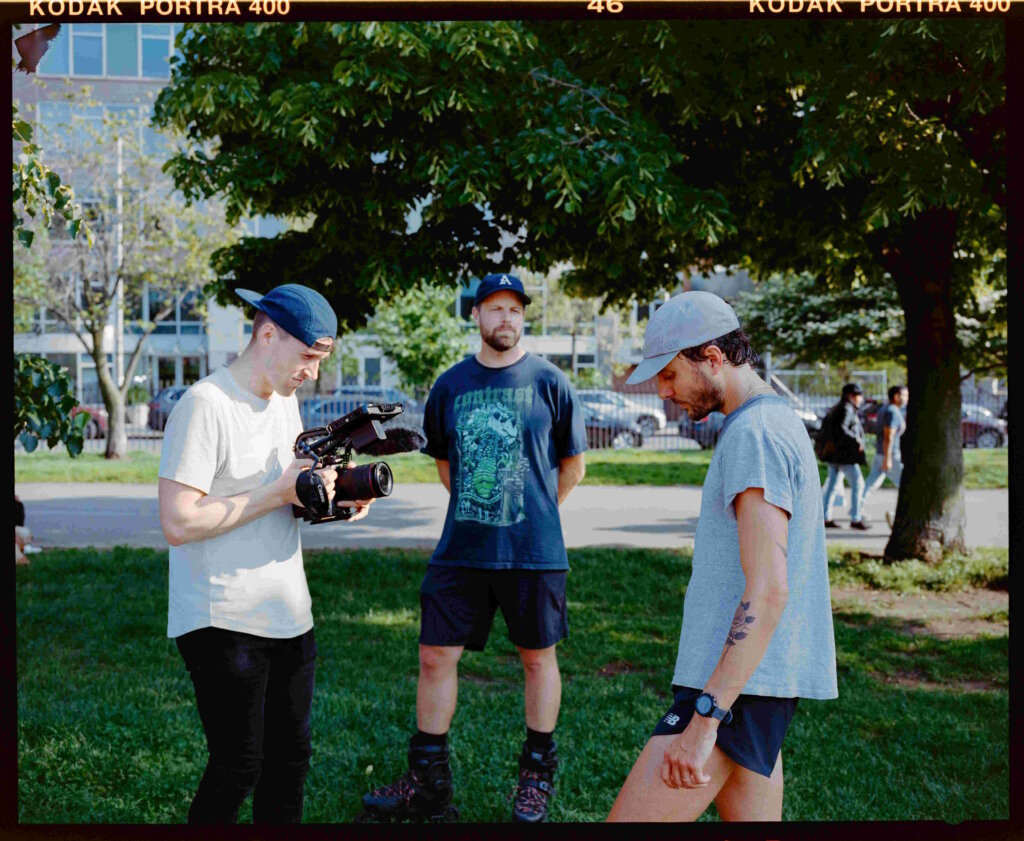
How do you search for music on Musicbed? What are some tips that you’d give other filmmakers to search on Musicbed?
My favorite way to search is a combination of filtering songs through genre, mood, & attributes, but the dark horse is the “advanced” section. Oftentimes, if I find a song I particularly like, I’ll search for other songs in the same key or BPM to transition to from that first song. This regularly helps me find music I may not have found otherwise, and I’ve been using that hack for the better part of a year now. I love being able to search for songs via key signature.
Why do you utilize Musicbed in your work?
Musicbed was the first place I ever went for music licensing needs. I was immediately drawn to the service with how much intentionality there was in the curation of quality, clear recognition of musical talent, and design that made the user experience exciting. To be honest, I don’t look anywhere else anymore. My needs are always met through the library, and they’re met quickly. I rarely have to spend more than 15 minutes looking for a song that meets my level of production quality/needs, and that alone is one of the most valuable assets of the service.
Explore a curated playlist of filmmaker Eric Floberg’s favorite songs to captivate his audience—only available to license on Musicbed.















































































